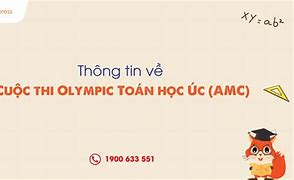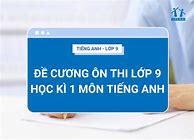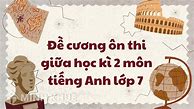
Phổ Biến Luật Chơi Tiếng Anh
Hai từ mang sắc thái nghĩa tương tự nhau dễ nhầm lẫn là popular (nổi tiếng) và common (phổ biến)
Hai từ mang sắc thái nghĩa tương tự nhau dễ nhầm lẫn là popular (nổi tiếng) và common (phổ biến)
Tiếng Lóng Trong Tiếng Anh Phổ Biến
Có thể thấy, tiếng lóng trong tiếng Anh thực sự đa dạng và còn tuỳ thuộc xem bạn đang thăm vùng đất nào. Thấu hiểu và sử dụng tiếng lóng đúng cách cũng chính là một trong những cách tốt để bạn có thể hoà nhập vào môi trường học tập, làm việc và đời sống sinh hoạt tốt nhất.
Trong tiếng Anh cũng có rất nhiều các nghành nghề khác nhau, trong mỗi ngành nghề lại có những từ gọi chuyên biệt, nếu bạn đang muốn củng cố vốn từ vựng của mình về các nghề nghiệp phổ biến thì có thể xem danh sách các từ vựng về nghề nghiệp sau nhé!
Vậy, nghề nghiệp trong tiếng Anh của bạn là gì nhỉ?
Trung tâm tiếng Anh NEWSKY tổng hợp. Chúc bạn học tiếng Anh thật tốt nhé!
Danh sách dưới đây cung cấp cho bạn 1000 từ tiếng Anh được sử dụng thường xuyên nhất theo thứ tự bảng chữ cái. Khi bạn đã nắm vững danh sách từ vựng ngắn hơn, đây là bước tiếp theo. Sẽ mất thời gian để tìm hiểu toàn bộ danh sách từ đầu, nhưng bạn có thể đã quen thuộc với một số từ này. Cứ sao chép thoải mái danh sách này vào công cụ quản lý thẻ nhớ trực tuyến của bạn, một ứng dụng hoặc in ra để tạo ra các thẻ nhớ bằng giấy. Bạn sẽ phải tự tìm kiếm ý nghĩa của chúng bằng tiếng Anh hoặc trong ngôn ngữ của bạn. Chúc bạn cải thiện vốn từ vựng tiếng Anh của mình một cách may mắn!
a ability able about above accept according account across act action activity actually add address administration admit adult affect after again against age agency agent ago agree agreement ahead air all allow almost alone along already also although always American among amount analysis and animal another answer any anyone anything appear apply approach area argue arm around arrive art article artist as ask assume at attack attention attorney audience author authority available avoid away baby back bad bag ball bank bar base be beat beautiful because become bed before begin behavior behind believe benefit best better between beyond big bill billion bit black blood blue board body book born both box boy break bring brother budget build building business but buy by call camera campaign can cancer candidate capital car card care career carry case catch cause cell center central century certain certainly chair challenge chance change character charge check child choice choose church citizen city civil claim class clear clearly close coach cold collection college color come commercial common community company compare computer concern condition conference Congress consider consumer contain continue control cost could country couple course court cover create crime cultural culture cup current customer cut dark data daughter day dead deal death debate decade decide decision deep defense degree Democrat democratic describe design despite detail determine develop development die difference different difficult dinner direction director discover discuss discussion disease do doctor dog door down draw dream drive drop drug during each early east easy eat economic economy edge education effect effort eight either election else employee end energy enjoy enough enter entire environment environmental especially establish even evening event ever every everybody everyone everything evidence exactly example executive exist expect experience expert explain eye face fact factor fail fall family far fast father fear federal feel feeling few field fight figure fill film final finally financial find fine finger finish fire firm first fish five floor fly focus follow food foot for force foreign forget form former forward four free friend from front full fund future game garden gas general generation get girl give glass go goal good government great green ground group grow growth guess gun guy hair half hand hang happen happy hard have he head health hear heart heat heavy help her here herself high him himself his history hit hold home hope hospital hot hotel hour house how however huge human hundred husband I idea identify if image imagine impact important improve in include including increase indeed indicate individual industry information inside instead institution interest interesting international interview into investment involve issue it item its itself job join just keep key kid kill kind kitchen know knowledge land language large last late later laugh law lawyer lay lead leader learn least leave left leg legal less let letter level lie life light like likely line list listen little live local long look lose loss lot love low machine magazine main maintain major majority make man manage management manager many market marriage material matter may maybe me mean measure media medical meet meeting member memory mention message method middle might military million mind minute miss mission model modern moment money month more morning most mother mouth move movement movie Mr Mrs much music must my myself name nation national natural nature near nearly necessary need network never new news newspaper next nice night no none nor north not note nothing notice now n't number occur of off offer office officer official often oh oil ok old on once one only onto open operation opportunity option or order organization other others our out outside over own owner page pain painting paper parent part participant particular particularly partner party pass past patient pattern pay peace people per perform performance perhaps period person personal phone physical pick picture piece place plan plant play player PM point police policy political politics poor popular population position positive possible power practice prepare present president pressure pretty prevent price private probably problem process produce product production professional professor program project property protect prove provide public pull purpose push put quality question quickly quite race radio raise range rate rather reach read ready real reality realize really reason receive recent recently recognize record red reduce reflect region relate relationship religious remain remember remove report represent Republican require research resource respond response responsibility rest result return reveal rich right rise risk road rock role room rule run safe same save say scene school science scientist score sea season seat second section security see seek seem sell send senior sense series serious serve service set seven several sex sexual shake share she shoot short shot should shoulder show side sign significant similar simple simply since sing single sister sit site situation six size skill skin small smile so social society soldier some somebody someone something sometimes son song soon sort sound source south southern space speak special specific speech spend sport spring staff stage stand standard star start state statement station stay step still stock stop store story strategy street strong structure student study stuff style subject success successful such suddenly suffer suggest summer support sure surface system table take talk task tax teach teacher team technology television tell ten tend term test than thank that the their them themselves then theory there these they thing think third this those though thought thousand threat three through throughout throw thus time to today together tonight too top total tough toward town trade traditional training travel treat treatment tree trial trip trouble true truth try turn TV two type under understand unit until up upon us use usually value various very victim view violence visit voice vote wait walk wall want war watch water way we weapon wear week weight well west western what whatever when where whether which while white who whole whom whose why wide wife will win wind window wish with within without woman wonder word work worker world worry would write writer wrong yard yeah year yes yet you young your yourself
Tiếng lóng tiếng Anh cho các sự kiện nói chung
1. Hang out = To spend time with others | Đi chơi, dành nhiều thời gian với người khác. Ví dụ: “Want to hang out with us?”
2. I’m down = I’m able to join | Tôi sẵn sàng đi/ tham gia cuộc chơi. Ví dụ: “I’m down for ping pong.”
3. I’m game = I’m able to join | Tôi sẵn sàng đi/ tham gia cuộc chơi.
4. I’m in = I’m able to join | Tôi sẵn sàng đi/ tham gia cuộc chơi.
5. A blast = A very fun event | Sự kiện cực kỳ vui vẻ, ngoài sức tưởng tượng!. Ví dụ: “Last night was a blast!”
6. Show up = Arrive at an event | Tham dự sự kiện. Ví dụ: “I can’t show up until 7.”
7. Flick = A movie | Bộ phim. Ví dụ: “Want to see a flick on Friday?”
8. Grub = Food | Đồ ăn. Ví dụ: “Want to get some grub tonight?”
9. Wasted = Intoxicated | Say rượu. Ví dụ: “She was wasted last night.”
11. Booze = Alcohol | Đồ uống có cồn. Ví dụ: “Will they have booze at the party?”
Tiếng lóng tiếng Anh miêu tả mối quan hệ
English Slang for People & Relationships
1. Babe = Your significant other; an attractive individual | Miêu tả người yêu, hoặc người yêu rất hấp dẫn. Ví dụ: “Hey babe!” or “She’s a babe.”
2. Have a crush = Attracted to someone romantically |
Cảm nắng’ một ai đó. Ví dụ: “I have a big crush on him.”
3. Dump = To end a romantic relationship with someone. | Chia tay. Ví dụ: “She dumped him last May.”
4. Ex = An old relationship or spouse. | Mối quan hệ cũ. Ví dụ: “That’s ex girlfriend.”
5. A turn off = Something that’s repulsive. | Phản cảm, không hợp bối cảnh. Ví dụ: “Bad cologne is a turn off.”
6. Party animal = One who loves parties. | Mô tả người thích tiệc tùng. Ví dụ: “Jerry is a party animal.”
7. Couch potato = A lazy person. | Lười biếng. Ví dụ: “Don’t be a couch potato! Let’s go for a hike.”
8. Whiz = A really smart person. | Người rất thông minh. Ví dụ: “Sally is a whiz at math.”
9. Chicken = Coward. | Hèn nhát. Ví dụ: “Don’t be a chicken! Go ice skating with me.”
10. Chick = A girl or young woman. | Cô gái hoặc người phụ nữ trẻ. Ví dụ: “That chick is hilarious.”
11. Getting hitched = Getting married. | Kết hôn. Ví dụ: “Tom and Sally are getting hitched.”
12. Tying the knot = Getting married. | Kết hôn.
13. They got fired = They lost their job. | Mất việc. Ví dụ: “Did Jerry get fired?”
Ý nghĩa về tiếng lóng trong Anh (Trường hợp đặc biệt)
1. Freebie = Something that is free. | Đồ miễn phí. Ví dụ “The bumper sticker was a freebie.”
2. Lemon = A bad purchase | Mua cái gì đó không đáng tiền. Ví dụ: “That phone case was a lemon.”
3. Shades = Sunglasses. | Kính râm. Ví dụ: “I can’t find shades.”
4. Shotgun = The front seat of a car | Ghế trước không phải là ghế lái. Ví dụ: “Can I sit shotgun?”
5. In no time = Very soon. | Rất nhanh chóng thôi. Ví dụ: “We’ll have our homework done in no time.”
6. Buck = One dollar. | 1USD. Ví dụ: “It only costs a buck.”
7. Rip-off = A purchase that was very overpriced | Mua đồ bị hớ quá nhiều tiền. Ví dụ: “That phone case was a rip-off.”
‘Ta, bogan, brekkie’ và các thuật ngữ tiếng lóng phổ biến khác của Úc mà sinh viên sẽ thường xuyên nghe thấy khi du học Úc.
Do đó, hãy bắt đầu với những điều cơ bản: từ điển tiếng lóng cơ bản của Úc.
Dưới đây là danh sách các thuật ngữ tiếng lóng phổ biến của Úc bạn có thể đã nghe trước đây nhưng không biết ý nghĩa của chúng.
Cùng 65 trường hợp khác, cụ thể như sau:
Tiếng lóng tiếng Anh dùng để đàm thoại hàng ngày
1. What’s up? = Hey; what are you doing? | Bạn đang làm gì thế?. Ví dụ: “Hey Tom! What’s up?” “Not much!”
2. I feel you = I understand and empathize with you. | Tôi cảm nhận được và luôn có sự đồng cảm dành cho bạn. Ví dụ: “I feel you. That was unfair.”
3. I get it = I understand. | Tôi hiểu rồi. Ví dụ: “I get it now! Thank you for explaining that.”
4. Same here = I agree. | Tôi đồng ý. Ví dụ: “I’m having a hard time studying for this exam.” “Same here.”
5. bad = mistake. | Lỗi của tôi!. Ví dụ: “ bad! I didn’t mean to do that.”
6. Oh God! = (Used to describe excitement or surprise) | Lạy chúa tôi. Ví dụ: “Oh God! You scared me!”
7. You bet = Certainly, you’re welcome | Chắc chắn rồi!. Ví dụ: “Thanks for the jacket, Tom!” “You bet, Sally!”
8. No worries = That’s alright. | Bạn không phải lo lắng gì nữa cả. Ví dụ: “No worries about the mess. I’ll clean it up.”
9. No biggie = It’s not a problem. | Không có vấn đề gì đâu. Ví dụ: “Thanks for tutoring me, Tom!” “No biggie, Sally.”
10. No big deal = It’s not a problem. | Không có vấn đề gì đâu.
11. No sweat = It’s not a problem. | Không có vấn đề gì đâu.
12. No problem = It’s not a problem. | Không có vấn đề gì đâu.
1. Laid back = Relaxed or calm | Thoải mái hoặc bình tĩnh. Ví dụ: “This weekend was very laid back.”
2. Chill = Relaxed or calm | Thoải mái hoặc bình tĩnh.
3. Sweet = Fantastic | Tuyệt vời. Ví dụ: “I passed the test!” “Sweet!”
4. Cool = Fantastic | Tuyệt vời.
5. Lame = Chán thật! Nghĩa đối nghịch với ‘Sweet, Cool’. Ví dụ: “That’s so lame that you can’t go out tonight.”
6. Bomb = Really good | Tốt thật sự, trên cả tuyệt vời! Ví dụ: “That sandwich was bomb.”
7. Bummer = A disappointment | Sự thất vọng. Ví dụ: “That’s such a bummer. I’m sorry that happened.”
8. Shady = Questionable or suspicious | Vấn đề đáng nghi ngờ. Ví dụ: “I saw a shady guy in neighbourhood last night.”
9. Hot = Attractive | Hấp dẫn. Ví dụ: “He/she is hot.”
10. Beat = Tired | Mệt mỏi. Ví dụ: “I was so beaten after that soccer game.”
11. Sick = Awesome | Tuyệt vời (đáng ngạc nhiên). Ví dụ: “Those shoes are sick!”
12. Epic = Grand or awesome | Tuyệt vời (Bất ngờ). Ví dụ: “That was an epic party last night.”
13. Ripped = Very physically fit | Rất khoẻ mạnh với cơ thể có tỷ lệ rất đẹp. Ví dụ: “Tom is ripped!”
14. Cheesy = Silly | Buồn cười, ngớ ngẩn. Ví dụ: “The romantic comedy we watched was very cheesy.”
15. Corny = Silly | Buồn cười, ngớ ngẩn.
16. Flakey = Indecisive | Thiếu quyết đoán. Ví dụ: “John is so flakey. He never shows up when he says he will.”
17. It sucked – It was bad/poor quality | Buồn chán, kém chất lượng. Ví dụ: “That movie sucked.”
Tiếng Lóng trong tiếng Anh là gì?
Theo ‘Slang: The People’s Poetry (OUP, 2009)’, Michael Adams đã nói rằng: ‘Tiếng lóng không chỉ đơn thuần là một hiện tượng từ vựng, một loại từ, mà là một thực hành ngôn ngữ bắt nguồn từ nhu cầu và hành vi xã hội, chủ yếu là nhu cầu bổ sung để phù hợp với hoàn cảnh sống’.
Do đó, để có thể thật sự hiểu được tiếng lóng địa phương, du học sinh cần có 1 thời gian sinh sống nhất định, để có thể hiểu được đời sống văn hoá xã hội, phong tục tập quán, để có thể nghe, hiểu, cũng như tạo ra tiếng lóng khi cần thiết!




















